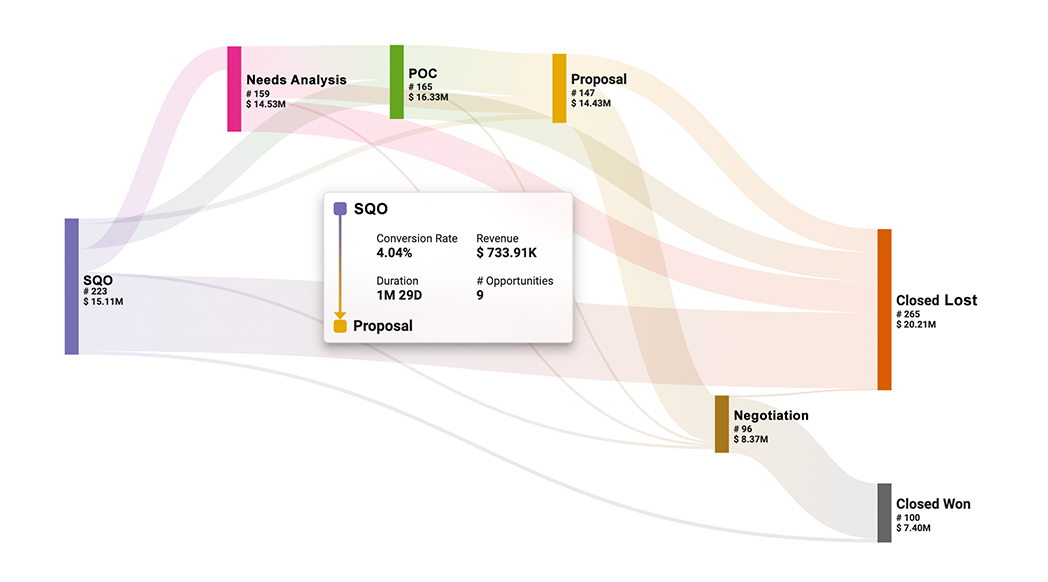
Eliminate Leaks In Your Revenue Engine
Remove inefficiencies | Improve underperforming metrics | Achieve your full revenue potential
SCHEDULE DEMO


Early detection, root cause and remediation of under-performing RevOps metrics improves target attainment
Align your GTM execution across marketing, sales and customer success to the buyer cohort to reduce inefficient spend
Hypothesis testing on the revenue impact of cross-functional factors without 24-48 hours of analyst back and forth
A digital representation of real-world end-to-end workflow, with cohorts and influencing factors
Tracking of revenue-impacting workflows between stages and teams
Tracks time-series progressions, so it is accurate both in the now and in the past
A single snapshot in time, an isolated number without qualitative context
No correlation to upstream metrics that contribute to revenue
Valid when calculated, out of date soon after

Identify the best marketing, SDR and sales touchpoints for high-velocity conversion to pipeline and ARR

Benchmark reps against each other and guide them to improve activity and performance metrics

Invest in GTM actions that drive highest conversion to revenue per dollar invested

Harvest existing accounts to maximize upsell, upgrade and cross-sell opportunities